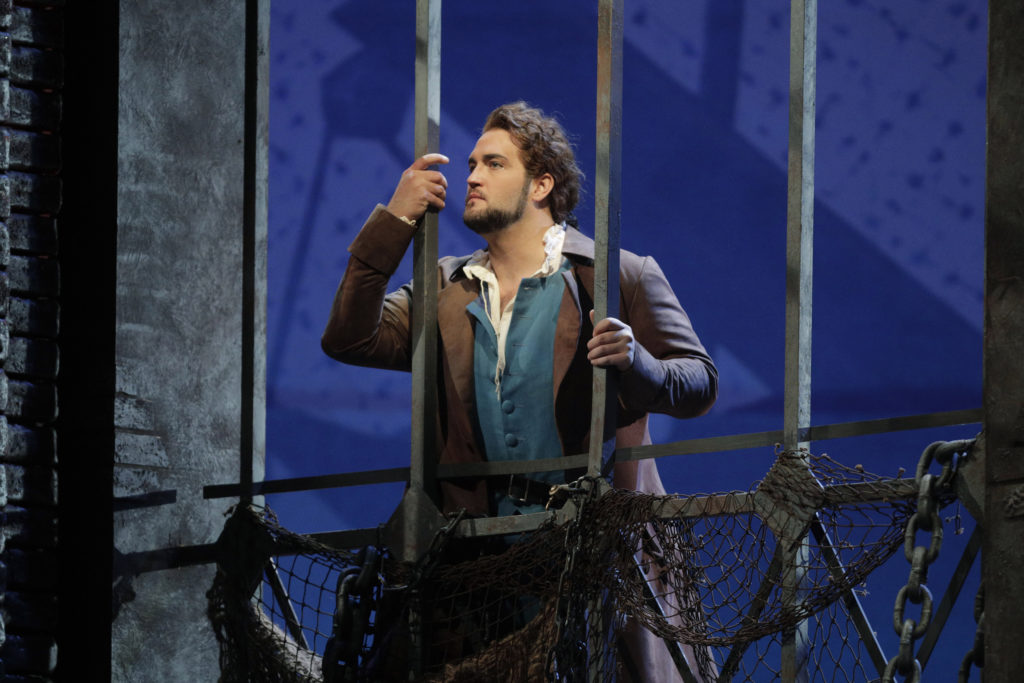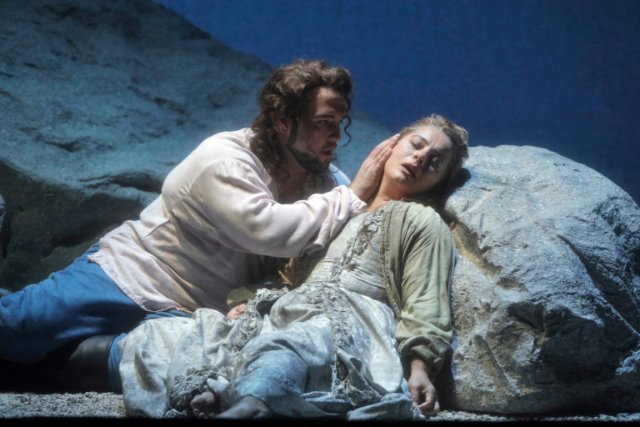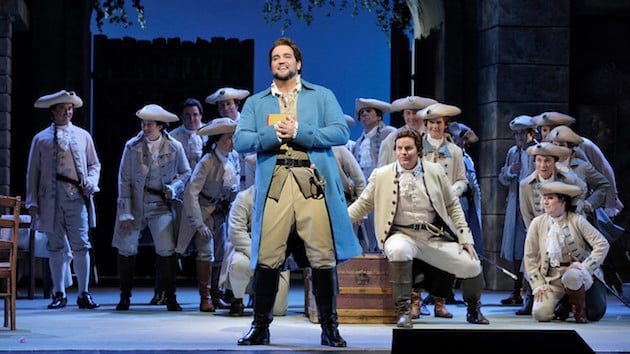
Jagde remained first and foremost a tenor and never a lover. There are however, and fortunately for Puccini, many other tenors in the world who might actually have discovered the poetry of this Romantic hero’s hopeless love for a sympathetic if neurotically narcissistic heroine.

Jagde is a fine singer and enjoys a deservedly successful career.

The role of the Chevalier des Grieux was delegated to tenor Brian Jagde who has already sung 13 other roles at San Francisco Opera. It is likely her Manon will now find very great appreciation as well. Coupling voice with small physical stature and extraordinary communicative powers has made Butterfly la Haroutounian’s rÙle fÈtiche, as seen on many of the world’s major stages. She possesses a very beautiful, clear, youthful voice of full lyric strength. Lianna Haroutounian is one of the rare artists who communicates every word she sings. Geronte de Revoir (Philip Skinner) relishes the arrest of Manon (Lianna Haroutounian) The evening at its best was this elegant duet of the maestro with the soprano. And finally in the last act Manon’s wrenching “Sola, perduta, abbandonata” sung, initially supine, the soprano lost within herself, the maestro offering only the woodwind desolation of love lost in the Louisiana desert. And then came the impassioned duet with des Grieux “Tu, tu, amore, tu, ah! mio immenso amore,” the maestro riding the emotional crests of love with orchestral harmonies and phrasing of sweetly charged color. Haroutounian’s exquisitely intoned “in quelle trine morbide,” the soprano locked totally within herself. The second act resolutely explored the intimacy of Manon’s feelings, the maestro in total sympathy with Mme. The maestro, with Puccini, let us know that love itself was to be the unquestioned muse of the evening. But the maestro made the moment Manon falls in love with des Grieux so delicate that it almost seemed real, the subtly discovered emotions flowing in beautifully colored orchestral chords.

The driving force of this splendid (in part) evening was conductor Nicola Luisotti who attacked an excited piazza in Amiens with such energy that I feared for the tenor of Puccini’s delicate (well maybe not-so-delicate) love scenes to come. If for nothing else her relative youth becomes the Abbe PrÈvost’s teenage heroine, plus this young soprano is in her vocal prime, may it endure for years to come.


 0 kommentar(er)
0 kommentar(er)
